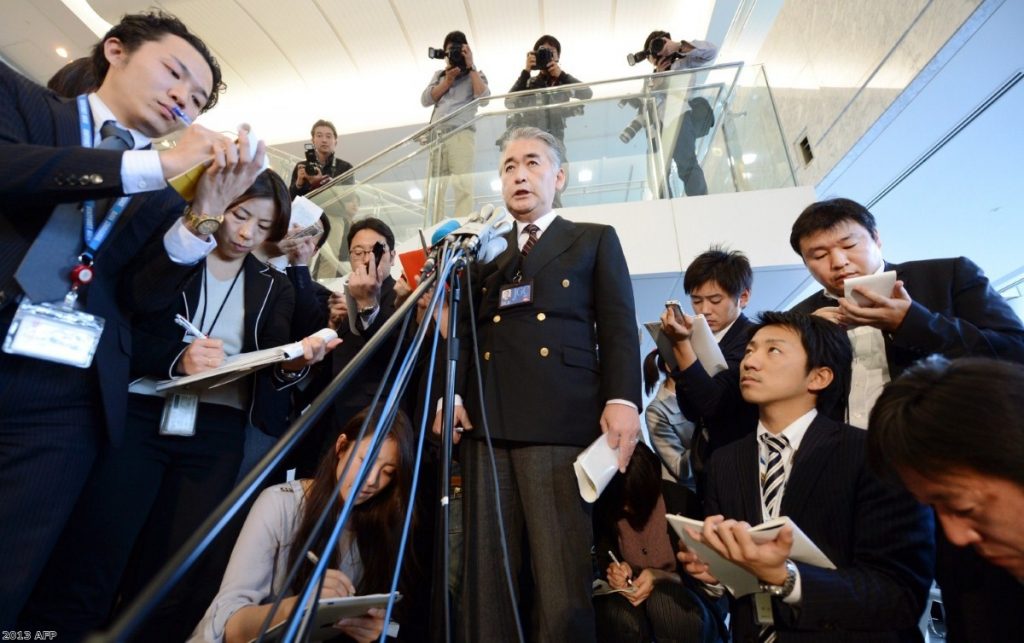Cameron walks the tightrope with criticism of botched Algerian rescue operation
David Cameron walked a delicate diplomatic tightrope today, after he issued guarded but unprecedented criticism of the way Algeria is handling the hostage crisis in its territory.
Speaking in an emergency statement to the Commons, the prime minister said the Algerian government had his full support but raised concerns about a rescue operation which saw at least 34 hostages killed along with 14 kidnappers.
British efforts to offer assistance were rejected and his request that he be notified before any rescue operation was ignored.
"We were not informed of this in advance," Cameron told the Commons.


"The Algerian prime minister said the terrorists tried to flee. He said there was immediate threat to hostages.
"This is a large and complex site and they are still pursuing terrorists and possibly hostages.
Last night the number of British citizens at risk was thought to be less than 30, but that number is now understood to be significantly lower.
"The Algerian government felt they had to make decisions very quickly, they felt there was an urgent threat to life," Cameron continued.
"I regret the fact we weren't informed in advance and of course the offers to help were made and still stand."
Paris, Washington and Tokyo were also angered by the Algerian rescue operation, with Japan summoning the country's ambassador to explain the decision.
In a sign of the extent of cross-party unity on the issue, Labour leader Ed Miliband told the prime minister: "The government has our full support. I want to thank him for keeping me informed."
In Washington, US defence secretary Leon Panetta took on a more robust tone.
"Terrorists should be on notice that they will find no sanctuary, no refuge – not in Algeria, not in north Africa, not anywhere," he said.
Terrorists affiliated with al-Qaida launched the "brutal and savage" attack on the foreign-owned gas plant on Wednesday morning.
According to Algerian authorities they first attacked two buses en route to the facility, then took the residential compound and then the gas facility. At this stage one British worker was killed.
The prime minister has spoken to his Algerian counterpart three times since the crisis began. He has also chaired three meetings of the emergency Cobra committee in Whitehall. Foreign secretary William Hague cut short his trip to Australia to return to the UK.
"Our priority remains at the moment to identify exactly what has happened to each British national caught up in this incident and indeed to help other countries determine what has happened to their nationals," he said before boardung the plane.
"We're working to ensure that those who survive this ordeal are properly cared for and reunited with their loved ones and that the families of all those involved receive full and accurate information and support."
British pleas for a softly-softly approach to the emergency appear to have fallen on deaf ears, with Algerian forces attacking the compound in a manner which reinforced their reputation for heavy-handed responses to terrorist situations.
Some reports said helicopter gunships strafed workers living quarters where hostages were being held. Others even suggested warplanes were used for bombing attacks.
The counter-strike did free 600 Algerian workers and four foreign hostages – two from Scotland, one each from France and Kenya.
"A large number of hostages were freed and a large number of terrorists were eliminated and we regret the few dead and wounded," Algerian communications minister Mohamed Said Belaid said, in a statement which claimed the attack was a success.
French President Francois Hollande said the attack showed why his military intervention in Mali was necessary, but some experts have questioned whether the strike really is in retaliation for France military excursion.
The complexity of the operation would have required weeks of planning and French intervention in Mali has only been ongoing for a few days.









